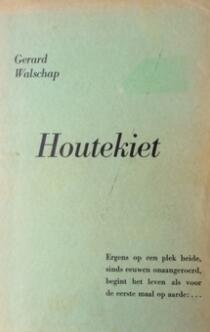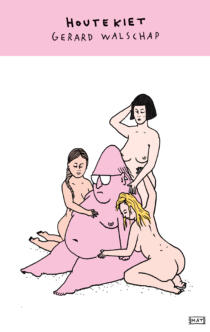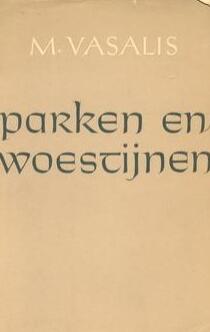This theme cannot be separated from a well-known biographical fact about the poet: he suffered from mental illness and killed his landlady in 1937. And yet, this event does not dictate the fabric of his poetry. It is the other way around: the fabric of his poetry lends this biographical chapter a mythical dimension.
In fact, the subject of the lost loved one already dominated Achterberg’s poetry before the tragic event. The poet wanted to immortalise the beloved, to save her from temporality and, as it were, cure her of transience:
Het licht blijft in uw ogen staan,
alsof gij heden zijt ontwaakt.
Maar zij volgen zon noch maan.
Geen ster wordt aangeraakt.
Voorzover het mijn bloed aangaat,
zijt gij van ieder element
verzadigd en voldaan.
En nochtans moet het woord bestaan,
dat met u samenvalt.
The light in your eyes continues to shine,
as though today you had waked they stare,
yet they follow sun nor moon,
touch no star.
As far as my blood's concerned, you are
with every element
requited and replete.
Yet somewhere a word must lie that is
your perfect counterfeit.
(From the poem Word)
The “Word” is a crucial concept. Firstly, it refers, of course, to the Bible: “In the beginning was the Word”. Achterberg grew up in a Calvinist family, and in that milieu, speaking the language of the bible meant to receive the true findings of the saints, to be reborn. It is the use of the language that will show who will be reborn. The word (and, therefore, the poem) also seems to evoke a space in which impermanence does not exist. The “then” and “now” coincide.
Finally, the generation of poets to which Achterberg belonged was contemporaneous with the rediscovery of the autonomous word. For them, the word was not the rendition of reality but the creator of reality. In this sense, the Word (and the poem) is positioned between matter and spirit, between the ideal and reality.
Dreams, death, the word and rebirth are all important themes in Achterberg’s work. This is evident from the titles of his collections and individual poems: After the End, Dream Ballad, Sphinx, Eurydice, Todesraum and so on.
Achterberg uses a clear language and mundane words: bed – cobblestones – groceries – car – automatic – intact. But his poems are striking for their modern imagery and a compelling, mesmerising tone, which is bolstered by a simple sound pattern and distinct rhythm. Achterberg had a preference for the sonnet form. The “mirroring” effect of the sonnet rhyme scheme intensifies the sensation of an enclosed, “ideal”, mythical space.
Achterberg’s work forms a cohesive whole despite the ambiguities that appear in it. The “you” in the poems may be the unreachable beloved, who needs to be vitalised through the poems, but the poet could also be addressing a metaphysical entity or God. It is these intriguing ambiguities, along with a magical tone and atmosphere, which makes Island of the Soul a powerfully evocative collection to this day.






